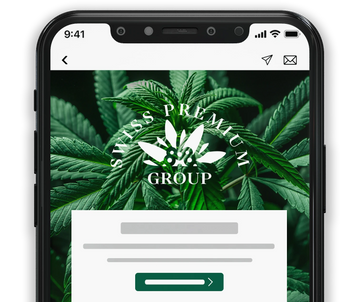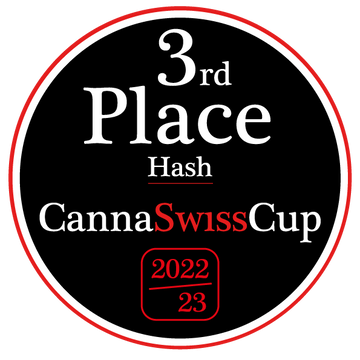Is CBD dangerous?
CBD is an attractive natural supplement due to its vast potential for many health conditions, both chronic and acute, like seizures, anxiety, pain, inflammation, and sleeplessness. Furthermore, it is non-intoxicating and legal since it comes from hemp. But despite CBD's prevalence and popularity, there's still a lot we don't know about it, including its long-term side effects.
The most common danger associated with CBD is its ability to interact with other drugs and medications. There are, however, more risks people need to be aware of with CBD.
Today, we will explain why drug interactions are dangerous and what else you should keep in mind about using CBD so you can make safe, smart, and informed decisions.
Common CBD Side Effects
In 2018, the World Health Organization (WHO) released a statement that CBD is generally well-tolerated. It has a much higher safety profile than opioids or other prescription medications and a low tolerance for abuse and addiction. While long-term side effects on humans are not known, mild side effects include:
- tiredness
- gastrointestinal issues like diarrhea or nausea
- changes in appetite which can lead to weight loss
- dry mouth
- irritability
- sleeplessness
Just as everyone is different, CBD does not work the same for everybody. Some people experience side effects, while others don't. Some might even experience a paradoxical reaction where instead of feeling what most do, they experience the opposite effect, like restlessness instead of sleepiness. Paradoxical reactions are unlikely, but worth noting.
How CBD Interferes with Medications
WHO also found that side effects were often the result of interference with other medications. Interactions are typical in plant medicine, as even herbs like echinacea, valerian, and St. John's Wort can interact negatively with other plants or drugs.
Interaction occurs in the liver, a crucial organ in metabolism, which processes food, drugs, and other substances. Within the liver are a family of metabolic enzymes called CYP450. These are responsible for converting and eliminating foreign materials. Certain substances can affect this process by slowing down or speeding up the metabolism, therefore altering how the body processes them.
A slowed metabolism means that more medication is in your system at once than intended. This exaggeration leads to unwanted side effects of that medication or an overdose. Increased metabolism means that not enough medication will be in your system and can't treat the intended health issue.
CYP450 enzymes are also responsible for metabolizing cannabinoids. Since CYP3A4 specifically metabolizes CBD, taking CBD can inhibit this enzyme and affect any other medications.
It is critical to establish a conversation with your doctor about CBD to make sure you're not putting yourself at risk with other medications. For quick reference, avoid CBD if your medication comes with a grapefruit warning. The chemical furanocoumarins in grapefruits also inhibit CYP3A4, resulting in a slowed metabolism and higher drug concentrations.
Here are the types of drugs and medications that don't mix with CBD:
- antibiotics and antimicrobials
- anticancer drugs
- antihistamines
- antiepileptic drugs
- blood pressure medications
- blood thinners
- cholesterol medications
- corticosteroids
- erectile dysfunction medications
- gastrointestinal medications, like for nausea
- heart rhythm medications
- immunosuppressants
- mood medications, like for anxiety or depression
- pain drugs
- prostate medications
If you take any of these, make sure to talk to your doctor or pharmacist. They may be able to recommend a safe dosage and monitor your liver functioning and blood plasma levels to make sure everything is in check.
Additional Risks
Drinking – It's best not to drink and take CBD. Consuming alcohol with CBD slows the brain activity responsible for anxiety, stress, panic, and sleep disorders, increasing the risks of drowsiness or sedation.
Smoking – If you choose to smoke CBD, be aware that while hemp is not carcinogenic, smoking of any form is. Smoking is harmful to anyone's health. If smoking is an issue for you, you can still use hemp pollen for cooking.
Reproductive Issues – Animals and in vivo studies showed alterations in cell viability and reduced fertilization capacity in mice. A 2018 study on reproductive toxicity saw a 30% reduction rate in litters. There might be a possibility of damage to fertility in males or male offspring from females who use CBD.
However, there need to be more human studies to confirm or dispute this.
Unregulated Products
Part of what makes CBD risky is the unregulated markets it operates in, allowing room for contamination and dishonesty. If contaminants like pesticides, mold, heavy metals are present in the hemp, residues will remain in the final product. Unsafe CBD products might also use synthetic cannabinoids.
When looking for CBD, it is vitally important to choose a quality product. The more transparency you can find about the brand, the better. Some important things to look out for are where they source their hemp and test results from the final product.
Why We Don't Know More About CBD
While animal studies are helpful, there are significant differences between animals and humans. To confidently say how CBD affects us, there need to be more clinical, human studies. Currently, these studies are minimal.
Furthermore, there are a lot of variables to test.
Different hemp strains have unique combinations of cannabinoids, flavonoids, and terpenes. We need to know how all these molecules act individually and in conjunction. Other major questions we need to know before CBD can be approved are:
- What are the effects of daily use after long periods of time?
- What dosage triggers known side effects like nausea, tiredness, or medication interference?
- How do different methods of consumption affect intake?
- What are the effects on pregnancy, breastfeeding, and developing children's brains?
- How does it interact with other herbs and plants?
Given all the variables with CBD, finding the answers to these questions will take time.
Is CBD Dangerous?
The question if CBD is dangerous is not a yes or no answer. Compared to pharmaceutical medications, CBD is less harmful and has less severe side effects. There are, however, many unknowns that make it risky.
Until more studies reveal the truth, people taking CBD should be cautious and consult with their doctor if they have any questions.

















